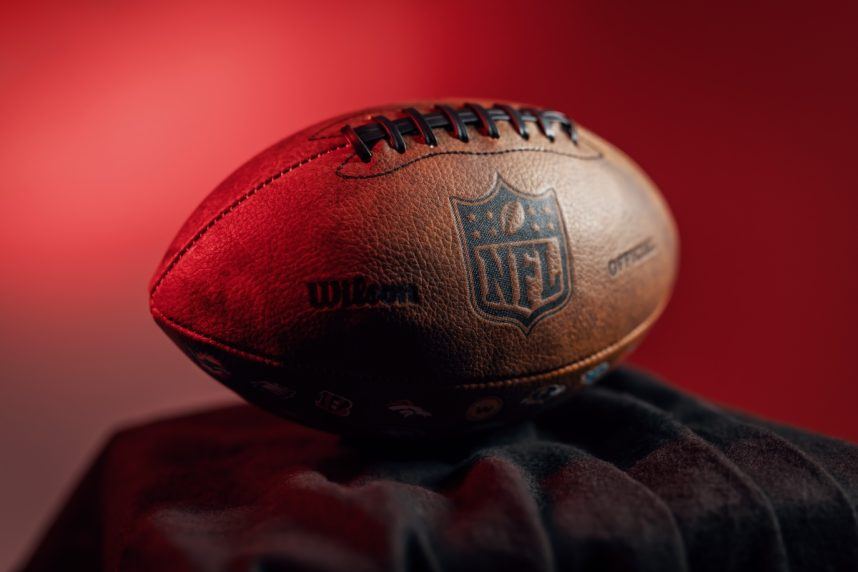American Gaming Association President Tells The Public Responsible ‘Gambling Isn’t Bad’
Posted on: September 3, 2025, 04:09h.
Last updated on: September 3, 2025, 04:09h.
- The American Gaming Association encourages bettors to bet responsibly
- The NFL season kicks off this week
- Legal bets on NFL games this season are expected to reach $30 billion
Bill Miller, the president and CEO of the American Gaming Association (AGA), says betting on sports in a responsible manner is a positive part of the fan experience. The key, however, is to keep gambling fun, social, and in check.

September is the AGA’s Responsible Gaming Education Month. It coincides with the kickoff of the NFL regular season, the most-bet sport in the United States.
The AGA estimates that legal sportsbooks will field $30 billion in bets on NFL games this season, an 8.5% increase from last year. Miller hopes fans engage responsibly.
Gambling isn’t bad if it’s done responsibly. It’s so important to have a game plan before you place a bet. Just like your favorite quarterback wouldn’t head into a big game without a strategy, betting works best when you set your plan and stick to it,” Miller wrote in an op-ed published by USA Today.
“Our industry continues to expand responsible gaming efforts with Play Smart from the Start, a new program designed to help fans make informed choices. It encourages bettors to begin with the right mindset, understand the odds and terminology, and play intentionally by setting limits,” Miller said of the industry’s commitments to responsible play.
The NFL season begins tomorrow night in Philadelphia with the defending champion Eagles hosting the Dallas Cowboys. The Birds are favored by 8.5 points, a line that lengthened after the Cowboys traded Micah Parsons to Green Bay.
Sustainability in Focus
Miller and the AGA say promoting responsible gaming isn’t only in the best interests of bettors but also the industry. While legal sports betting continues to expand, and the amount of money oddsmakers win climbs, Miller peaches that the goal is to ensure that betting remains fun and responsible.
Miller says the illegal market poses risks to bettors since they aren’t regulated and seek to “exploit” the public.
“They mislead fans, pose integrity risks, ignore safeguards, and siphon money from local communities,” Miller opined.
Legal sports betting has cut into illegal bookmaking operations, but the market nonetheless remains. The AGA estimates that illegal sportsbooks maintain a 24% share of the total US sports betting industry.
Problem Betting
Casino.org reported earlier this week that insights from UC San Diego’s Qualcomm Institute suggest problem gambling is on the rise, with academic researchers blaming the mainstreaming of sports betting as a root cause.
When the Supreme Court legalized sportsbooks — a venue where people can wager on various sports competitions — public health experts paid little attention,” said the study’s senior author John W. Ayers, Ph.D., who is vice chief of innovation in the Division of Infectious Disease and Global Public Health, deputy director of informatics at UC San Diego Altman Clinical and Translational Research Institute (ACTRI), and a Qualcomm Institute scientist. “Now, sportsbooks have expanded from a single state to 38 states, with hundreds of billions of wagers, mostly online, coinciding with record-breaking demand for help with gambling addiction as millions seek help.”
The study reported that calls and inquiries to problem gambling helplines and treatment centers have jumped 23% nationally between 2018 and last year.
Last Comment ( 1 )
It is not possible to use a product that is inherently addictive in a "responsible" manner - the more one uses such a product, the more it alters the user's brain. With enough usage, any user of an addictive product will eventually become addicted to it. The more accurate academic studies report on this phenomenon by investigating the "mean time to addiction" for various types of gambling instead of tracking what percentage of users are addicted to gambling at specific points in time. The AGA has been encouraging people to "gamble responsibly" for decades, but gambling addiction rates have continued to increase. Perhaps the best test of whether the AGA's advice to "gamble responsibly" really works is to investigate whether gambling executives "gamble responsibly" themselves - and you will find that they don't. In fact, most of them never gamble at all.